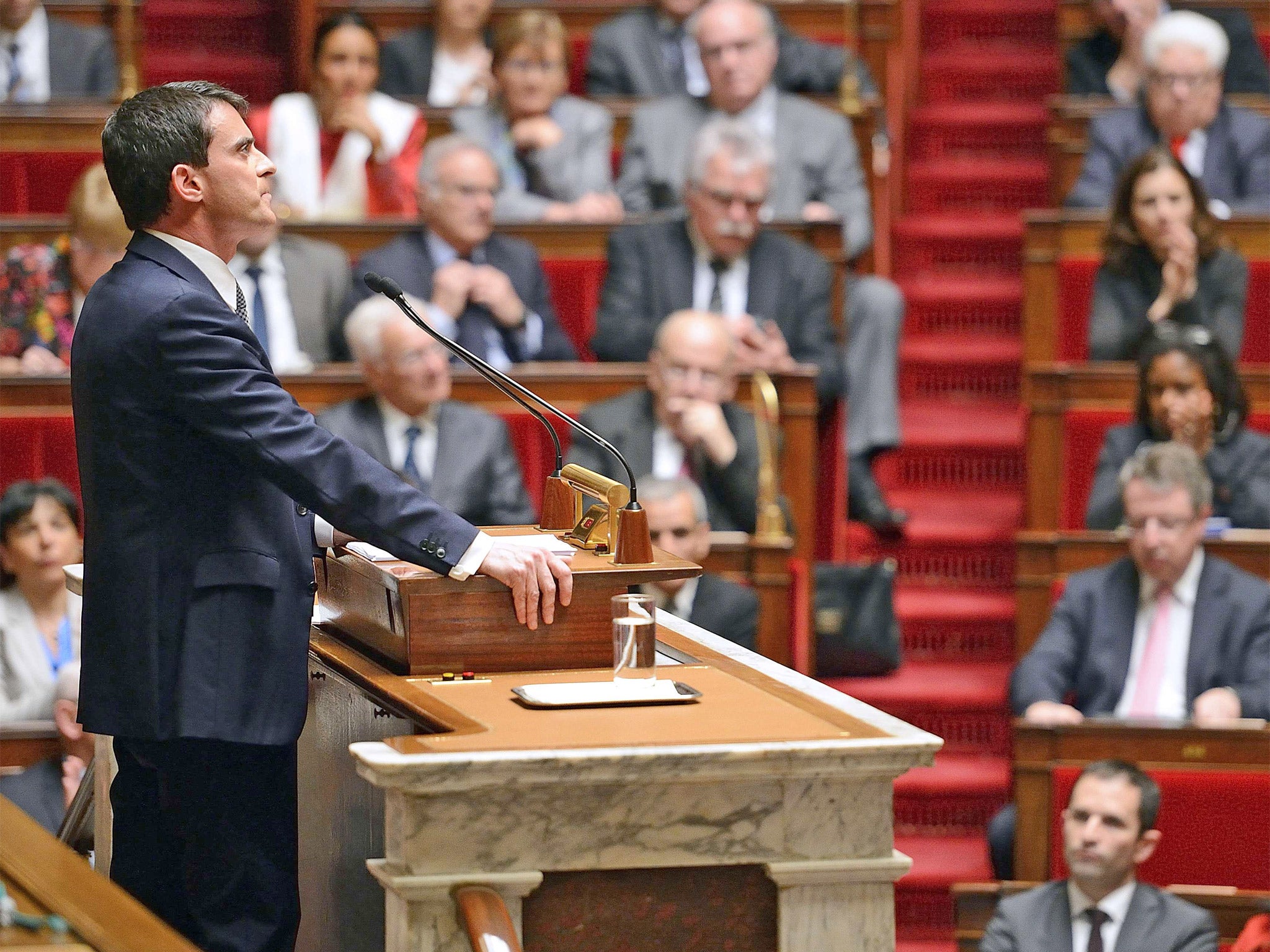New French Prime Minister Manuel Valls rallies liberal values as he squares up to Brussels
Pro-business, moderate Socialist criticises the high exchange rate of the euro

The new French Prime Minister, Manuel Valls, set Paris on a collision course with Brussels and its EU partners in a passionate first speech to parliament on Tuesday.
Mr Valls, 51, a pro-business, moderate Socialist appointed to rescue François Hollande’s floundering presidency, promised substantial tax and spending cuts to revive the French economy.
He warned, however, that France would be seeking a further relaxation of the budget deficit rules within the eurozone – something that Brussels, Berlin and senior members of the European Central Bank (ECB) have ruled out in recent days. Mr Valls also criticised the high exchange rate of the euro, which he said was 10 per cent higher than this time last year.
With one eye on the disgruntled left of the Socialist Party and the other on European elections next month, Mr Valls said that he accepted the need for fiscal discipline but not “counter-productive” austerity. He gave details of €50bn (£41m) in spending cuts over three years, announcing plans to shrink the sprawling French state by halving the 22 regions and abolishing departement (county) councils over the next seven years. Even with these cuts, Mr Valls hinted, it will not be possible for France to keep its binding eurozone commitment to reduce the state budget deficit to 3 per cent in 2015. He pointed out that the Hollande administration had already reduced the deficit from 5.2 per cent in 2012 to 4.3 per cent last year.
To go faster would be to risk a “counter-productive recession” and “damage” the interests and reputation of the EU, he said. To permit tax cuts for businesses and the low-paid, and to revive the French economy, his government would be “asking our EU partners” to “look again at the rhythm” of deficit-cutting.
France has already gained two concessions on its deficit targets in the past two years. Brussels, Berlin and the ECB warned recently that a further relaxation of the rules would risk rekindling a euro crisis.
Mr Valls, heckled throughout by right-wing members, was making his “declaration of general policy”, broadly equivalent to the Queen’s Speech to the Houses of Parliament. Despite opposition from hard-left parliamentarians and the abstention of some Socialists and Greens, he was expected to comfortably win last night’s vote of confidence.
Mr Valls, unpopular in the Socialist party, was appointed by President Hollande last week following calamitous municipal elections for the left. Tuesday’s speech demonstrated the qualities for which he was chosen: passion, energy and clarity. “Too much suffering and not enough hope, that is the condition of France,” he declared.
Born in Barcelona and naturalised French as a young man, Mr Valls ended with a ringing personal endorsement of the “French Dream”. There were few other countries in the world, he said, where an immigrant child could hope to become Prime Minister.
Following the far-right National Front’s strong showing in the elections, Mr Valls urged French people to reject racism and anti-semitism. “Let’s be proud of being French,” he said. “France has always been a country that has looked beyond itself... That is what it means to be French.”
Join our commenting forum
Join thought-provoking conversations, follow other Independent readers and see their replies
Comments
Bookmark popover
Removed from bookmarks